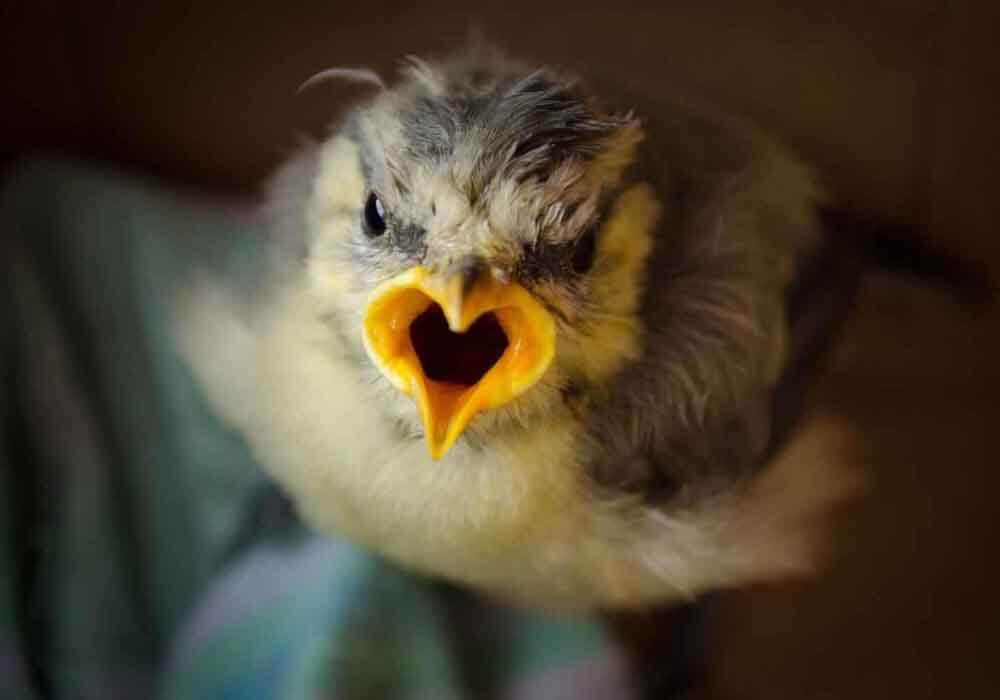Do Birds Mate for Life?
Or Are They Serial Cheaters?
Regarding love and relationships, birds often symbolize fidelity and commitment. This connection between lovers and birds is why people often refer to happy couples as lovebirds! But you may ask the question: Do birds mate for life?
Some birds mate for life, including owls, swans, geese, eagles, and albatrosses. These birds often form long-term pair bonds and mate with the same partner year after year. However, not all birds are monogamous. Some birds change mates every year or even every breeding season.
Discover more about this fascinating subject by reading the succeeding paragraphs. Here, I will discuss the types of birds that mate for life, what happens when the partner of birds that mate for life dies, and why some birds cheat. So if you’re curious about bird relationships, keep on reading!

Types of Birds That Mate for Life
Some of the most notable examples of bird species that mate for life include:
- Owls. One of the most iconic symbols of wisdom and intelligence, owls are also known to mate for life. These nocturnal predators often form lifelong bonds with their mates and can even continue to live in the same nest year after year.
- Swans. Swans are often associated with fidelity and lifelong commitment. These regal birds form strong pair bonds and usually mate with the same swan for many years.
- Geese. Geese are another type of bird that is known to mate for life. These birds form lifelong bonds with their mates and often stay together until one of them dies.
- Albatrosses. Albatrosses mate for life and often stay with their partners for many years. Albatross pairs usually only breed once every two to three years.
- Eagles. These powerful birds form strong pair bonds and often mate with the same bird for many years.
- Crane. Cranes are known to perform elaborate dances during courtship. Once they find a mate, they generally stay with that mate until one of them dies.
- Vultures. You will often find vultures scavenging on carcasses. Although they might not look like it, vultures form powerful bonds with their mates. These birds mate for life and usually stay together until one dies.
What Percentage of Birds Mate for Life?
Ninety percent of birds mate for life, according to the World Wildlife Federation, and the remaining ten percent are either polygamous or polygynous. These percentages show that it is rarer for polygamy in the bird world than life pair bonds.
Out of the 11,000 described bird species worldwide as of 2021, the World Wildlife Foundation claims that 90% of them are monogamous. This attribution means that they mate for life.
The remaining 10% of bird species are polygynous, which means that the males have more than one mate. The males in these species compete with each other for mating opportunities, often pursuing multiple females throughout their lifetime.
Additionally, a few bird species are polygamous, meaning that males and females have more than one mate. These birds usually live in social groups where multiple pairs of birds mate.

Do birds interbreed? Or is there something in their DNA that prevents them from doing so? We looked into this further and wrote this helpful article that answers this question.
Why Do Birds Mate for Life?
Birds mate for life to enhance pair survival, to promote reproduction, and their innate social structures also influence their pairings. Lifespan can also affect bird monogamy as longer-living bird species often form stronger pair bonds. Food scarcity may also promote multiple pairings.
Birds mate for life for a variety of reasons. Let me discuss some of these reasons in more detail below as I continue answering the question do birds mate for life?
Bird Monogamy Promotes Survival
Birds that live in pairs have a much better chance of surviving than those that don’t. They can take turns incubating their eggs and keeping an eye out for predators, and they can also help each other build nests and find food.
In addition, birds that mate for life tend to produce healthier offspring. The extra care they receive from both parents gives them a better chance of surviving adulthood. do birds mate for life
Longer Bird Lifespans Influence Monogamy
A bird’s lifespan directly influences how likely they are to mate for life. Birds with a shorter lifespan, such as finches, are less likely to mate for life because they don’t live long enough to form a strong pair bond.
On the other hand, birds with a longer lifespan, such as geese, are more likely to form life pairings because they have the time to develop a strong pair bond.
Bird Reproductive Rate Influences Pairing
Another reason why some birds mate for life is because of their reproductive rate. Birds with a higher reproductive rate, such as cuckoos and bluetits, are more likely to form bonds with multiple partners since they need to produce more offspring to ensure the survival of their species.
On the contrary, birds with a lower reproductive rate, such as albatrosses and swans, are more likely to mate for life since they don’t need to produce as many offspring.
Having a monogamous pair bond also benefits vulnerable hatchlings. Having two parents to feed and care for their young has advantages regarding hatchling survival.
Social Structure Dictates Bird Pairing
Another reason why some birds mate for life is because of their social structure. Birds living in flocks or colonies, such as sparrows and finches, are more likely to have multiple mates since they don’t typically form close bonds with any particular bird.
Meanwhile, birds that live in pairs or alone, such as eagles and owls, are more likely to mate for life since they only have one potential partner.
Food Scarcity Influences Bird Mating Behavior
The final reason why some birds mate for life is because of food scarcity. Birds that live in areas where food is scarce, such as hummingbirds and kiwis, are more likely to form bonds with multiple partners since each bird needs to fend for itself.
On the other hand, birds that live in areas where food is plentiful, such as ducks and geese, are more likely to mate for life since they don’t need to worry about finding enough food for themselves.
How do birds attract a mate?
Many species do mating dances like shown in this YouTube video...
What Happens When the Partner of Birds That Mate for Life Dies?
A few possible scenarios can play out when one partner in a mate-for-life pairing dies.
The Bird Searches for a New Mate
In some cases, the surviving bird will look for a new mate. This scenario usually happens if the bird is still young and hasn’t had enough time to form a strong bond with its previous mate. Also, this can occur if the bird’s mate dies a short time after they form a bond, as the bird hasn’t had enough time to bond with them fully.
The Bird Remains Single for the Rest of Its Life
Other times, the surviving bird will remain single for the rest of its life, never seeking out another partner. This situation occurs because they have formed such a strong bond with their previous mate that it is hard for them to find another partner that can match that level of connection.
Additionally, some birds that mate for life have specific mating rituals or calls only their partner knows, making it difficult for them to find another mate.
The Bird Dies From Grief
In some instances, though rare, a bird may die from grief after its mate dies. Studies have shown neurological similarities between birds and humans regarding pair bonding and grief. In humans and birds, the death of a long-time mate can trigger depression and anxiety. This result can weaken immunity and can lead to death in severe cases.
Do Birds That Mate for Life Cheat?
Birds that mate for life occasionally cheat, either singularly or as a pair. This behavior confers several benefits to the birds. Females benefit from genetic diversity, while males benefit from increasing their offspring. Birds often cheat due to a lack of resources or an ailing or unhealthy mate.
While it’s technically correct to say that some birds mate for life, it’s important to note that these pairings are not always exclusive. In other words, just because two birds are socially monogamous doesn’t mean they won’t occasionally mate with other partners.
Studies have shown that extrapair paternities (EPPs) and extrapair copulations (EPCs) are common in many bird species, even those that typically mate for life.
- Extrapair paternity: Though it may not be commonly known, EPP is a fascinating phenomenon in many bird species. EPP occurs when female birds mate with males outside of their social pair bond and, as a result, raise offspring that are not genetically related to their bonded mate.
- Extrapair copulation. EPC occurs when one or both members of a mated pair seek sexual partners outside their relationship. In some cases, EPC may involve only one pair member engaging in sexual activity with another individual; in others, both members of the pair may solicit or participate in sexual encounters with other birds.
Why Birds Cheat
Below are four possible explanations for why birds cheat on their mates.
- To have more offspring: Some male birds may mate with multiple partners to have more offspring. This increased reproduction rate allows them to spread their genes to more individuals and increases the chances that some of their offspring will survive to adulthood.
- To increase their genetic diversity: Female birds often mate with multiple males to ensure that she produces strong and healthy offspring. By having numerous mates, the female can increase the genetic diversity of her offspring and improve their chances of survival.
- To find a healthier mate: Birds that pair with a mate that is sick or weak may be more likely to cheat to find a healthier partner. A healthy mate is more likely to provide the resources and support needed to raise healthy offspring.
- To get more resources: Birds paired with mates that are low on resources may be more likely to cheat to access more food or nesting materials. This scenario is especially true for female birds, who need these resources to raise their young successfully.
Do Birds Mate For Life?...Final Thoughts
It’s fascinating to think about all the different ways that animals behave regarding reproduction. As humans, we like to think of ourselves as monogamous creatures—but even we don’t always live up to that ideal. When it comes to birds, though, there is no one-size-fits-all answer. Some birds mate for life, while others engage in extrapair copulations or paternity.
Ultimately, a bird cheating on its mate comes down to individual circumstances and what will benefit it most.
Back To The TOP Of This Do Birds Mate For Life Page

About the Author...
Richard Worden, a dedicated bird lover for over 20 years, I love to share my in-depth knowledge and passion for birds. Read more About Me and my expertise in this field.
- We Know Birds HOME ›
- Bird Mating and Reproduction Information ›
- Do Birds Mate For Life?



